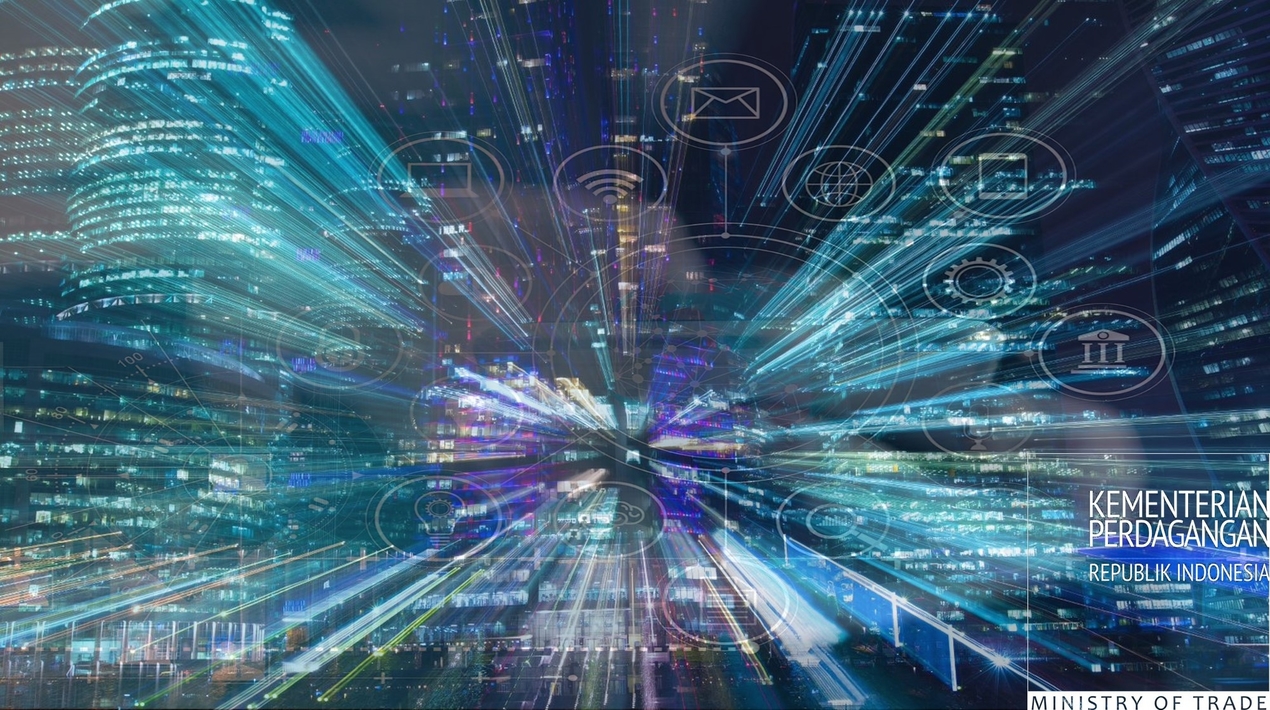
The large potential for online shopping is currently driving significant momentum for businesses to ramp up their digital transformation efforts.
This was the message that the Minister of Trade, Agus Suparmanto, conveyed as the chief speaker at the 2020 Digital Marketing & Human Capital Award, which was held by BusinessNews Indonesia earlier this week.
Minister Argus said that digital transformation requires a change in mindset. This aligned mindset coupled with technology and the streamlining of business processes will help help the nation survive the COVID-19 pandemic and simultaneously restore the national economy.
Argus believes that to be able to carry out digital transformation, business actors are required to have reliable employees with abilities that meet the needs of the digital era. The demand for such transformation then shifts the concept of employees from employees-as-resources to employees-as-company assets (human capital).
“The right business strategy today is to view employees as valuable corporate assets to be invested through various development and coaching programs to provide more benefits for the employees themselves and the company,” explained the Minister of Trade.
Currently, online shopping is still people’s primary choice during the COVID-19 pandemic. Moreover, this business model is one of the main ways businesses have been able to survive during the crisis.
This year online sales recorded record increases and set new benchmarks. Data from the Ministry of Communication and Information Technology shows that sales of products on social media and e-commerce portals in 2020 amounted to IDR 446.75 trillion (US$ 31.65 billion). This value represents an increase of over 400% compared to 2017 which amounted to IDR 124.9 trillion (US$ 8.88 billion).
The Minister of Trade went on to explain the four strategies to survive and increase sales in the current pandemic conditions.
First, by going digital to reach a wider market.
- Second, implementing multimedia marketing through various platforms such as websites, digital applications, including print and electronic media, whose purpose is to provide information to consumers.
- Third, provide product guarantees to build consumer trust. Fourth, promote empathy in marketing communications.
In the midst of the COVID-19 pandemic, Indonesia’s trade balance has shown good performance. Cumulatively, the trade balance for January-October 2020 reached USD 17.07 billion and is the highest achievement in the last five years. This achievement is partly supported by the increase in Indonesia’s export performance.
The export value in October 2020 reached USD 14.39 billion, an increase of 3.09 % compared to the previous month. Meanwhile, imports reached USD 10.78 billion or decreased by 6.79% compared to the previous month.
The Minister of Trade was encouraged that during this season, micro, small and medium enterprises (MSMEs) have begun marketing their products in a hybrid, namely online and offline. That way, the contribution of the sector to the national economy will be maintained.
Argus confirmed that the Ministry of Trade will continue to strengthen public markets, both physical and non-physical. One of the non-physical efforts is through increasing the capacity of human resources (HR) in public markets, especially traders, through the Market School program.
The Market School initiative is one of the non-physical revitalization efforts undertaken by the Ministry of Trade as a learning medium for traders who aim to increase knowledge as well as the competence of traders. In addition, the market school is a way for traders to ensure that healthcare protocols are followed in the markets.
Meanwhile, the ministry confirmed that the synergy between agencies encourages the recovery of the export market for creative products. The Minister of Trade emphasised that the cooperation of various parties is needed in encouraging the recovery of the export market for Indonesian creative economy products, especially during the. To that end, the Ministry of Trade will continue to improve synergy with related agencies and institutions.
















